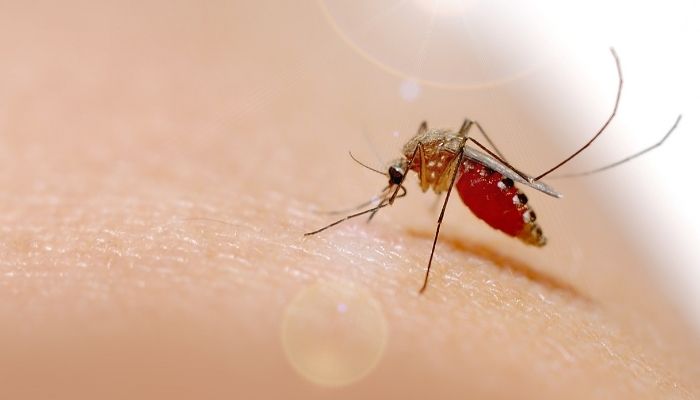Dengue: Symptoms, Preventions and Treatment Options
Kalpna is a girl who had dengue in recent days. However, she was unaware that dengue fever is its deadly relative. During the rainy season from May to November, children are aware of the symptoms of dengue fever, which include fever, headache, vomiting, and joint discomfort.
Despite government awareness campaigns, dengue fever remained very active in 2021. Each of those instances has a name, a backstory, and a family that has prayed passionately for recovery. For example, Kalpna realized that she was going through something profound and later discovered dengue.
What is Dengue?
Dengue fever, a painful and deadly sickness carried by mosquitoes, is caused by four closely related dengue viruses that cause West Nile and Yellow Fever. There are an estimated 400 million individuals with dengue fever every year, with 96 million becoming ill. The vast majority of cases occur in tropical areas.
Most patient infections are from someone who imported the virus from another nation. Consequently, residents in the southern United States, especially those living near the Texas-Mexico border, are becoming more vulnerable. Dengue fever by biting an Aedes mosquito carrying the dengue virus, and a mosquito becomes infected when it bites a human exposed to the dengue virus.
Symptoms
- High fever with no warning
- Headaches that be severe
- The back of the eyes ache
- Joint and muscular pain that is excruciating
- Fatigue
- Nausea
- Vomiting
- 2 to 5 days following the commencement of the fever, a rash emerges on the skin.
- Mild bruising
Symptoms might well be modest, but they can be mistaken for the flu or another viral illness. The virus has a lesser effect on younger people and babies who never had something before than it does on older children and adults. Significant complications, however, may develop. Dengue hemorrhagic fever is a rare consequence characterized by a high fever, rupture of lymph and blood vessels, bleeding from the nose and mouth initially, liver enlargement, then circulatory system failure. The symptoms might cause massive bleeding, shock, and even death. Active disease is the term for this ailment.
Dengue hemorrhagic sickness is known to be more likely in those who have a weakened immune system or have had previous dengue infection.
Preventions
There is no vaccination for dengue disease, and there are no treatments to prevent infection while going to locations where the illness is prevalent, unlike malaria. One preventive strategy is to avoid mosquito bites while visiting areas where dengue fever is prevalent.
The following steps will help you prevent dengue fever:
- Wear clothing or hats to cover your arms, legs, and face.
- Wear shoes instead of sandals or steel-toed shoes.
Should treat any exposed skin with insect spray. Ingredients included in the most effective repellents include:
- DEET (diethyl hydrochloride) at a dose of 30–50%
- Should treat clothing and shoes with permethrin insecticides.
- We will use mosquito netting coated with permethrin at night.
- Use insect repellents such as mosquito coils and electric repellents.
- If possible, request a room with insect screens just on doors and windows, or even one that is aerosol.
DENV transmission occurs when susceptible hosts, DENVs, and mosquitoes capable of information are all present simultaneously. Therefore, anyone living or traveling in a dengue-endemic area found in tropical Asia, Central America, and the Caribbean is at risk of contracting the disease. On the other hand, seasonal and epidemic outbreaks have the most significant risk of illness.
Treatment
Treatment of dengue fever does not even have a specific treatment regimen. A virus causes dengue fever, so antibiotics are useless in preventing it.
The treatment’s objective will be to reduce the severity of the symptoms:
- Rest
- Drink lots of water to prevent dehydration caused by vomiting and fever.
- Dengue fever treatment, such as paracetamol, may help to ease the pain while also lowering the body’s temperature. Non-steroidal anti-inflammatory medicines (NSAIDs) as aspirin and ibuprofen should be because they can induce bleeding.
- In severe dengue cases, hospitalization and treatment with intravenous fluids or blood products may be necessary, mainly if bleeding develops severe.
- Pain relievers and fever reducers that don’t cause further bleeding, such as Tylenol, may be utilized (acetaminophen).
- Stay hydrated by drinking plenty of water or alcoholic drinks.
- upward-pointing arrow
- If significant blood loss occurs, severe dengue may need intravenously (IV) fluids, especially electrolyte replacement, monitoring, and perhaps a blood transfusion.
- A virus causes dengue fever; hence there is no specific treatment or dengue cure. However, intervention may be effective based on the intensity of the illness.
The following are some of the milder forms’ treatment options:
- Avoiding a high fever and vomiting might help you prevent dehydration. Dengue treatment food Clean water should be drunk, ideally bottled instead of tap water, and Rehydration salts may also replenish minerals and fluids.
- Dengue medicine like Tylenol or paracetamol may help to lower temperature and pain.
- Non-steroidal anti-inflammatory drugs (NSAIDs), such as aspirin and ibuprofen, may raise the risk of internal bleeding.
In the most severe cases of dengue fever, you may need to:
- An intravenous (IV) fluid supplement or a drip may take fluids by mouth.
- Extreme depletion may need blood donations.
- If the patient’s symptoms deteriorate, admission to the hospital will allow for more intensive monitoring.
Dengue Fever: Causes and Risk Factors
- Female mosquitoes of the Aedes mosquito subspecies and, less often, Aedes albopictus subspecies, spread the virus subtypes that cause dengue fever.
- Aedes mosquitos are often encountered in urban and suburban areas because mosquitoes nest in artificial containers such as tires, flowerpots, and home bottles of water, according to the WHO.
- Dengue is caused by four distinct dengue viruses (DENVs) transmitted by the Aedes aegypti mosquito. Viruses transferred from monkeys towards humans between 100 and 800 years ago.
- According to the CDC, dengue fever was a minor problem until the mid-twentieth century. Aedes dengue in Africa can now be in tropical areas worldwide, especially in and around human populations. The virus from a human to an infected mosquito. When a mosquito bites a person with dengue fever, the virus follows an acute injury. Dengue may be infected several times, and a subsequent infection has a higher risk of evolving to a more severe form.
Conclusion
Dengue fever, often known as breakbone fever, is an infection spread by mosquitoes that may cause severe flu-like disease by Aedes mosquitoes and four distinct viruses. The virus can indeed be easily transmitted from one generation to another by direct contact.
FAQs
How Do You Know If You Have Dengue Fever?
Dengue is best diagnosed with a laboratory blood test. However, symptoms and the prevalence of the virus in the geographic region individual lives visited are also essential factors.
Who Has Dengue Fever, According to Research and Statistics?
According to the World Health Organization, dengue fever affects roughly half of the world's population. The number of reported cases to the World Health Organization has surged eightfold in the previous two decades. Dengue fever affects an estimated 400 million people worldwide each year, with roughly 100 million cases presenting clinically.






























13 thoughts on “Dengue: Symptoms, Preventions and Treatment Options”
Comments are closed.